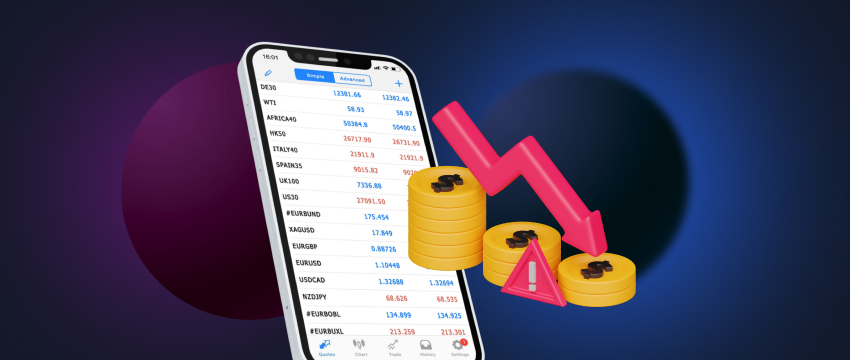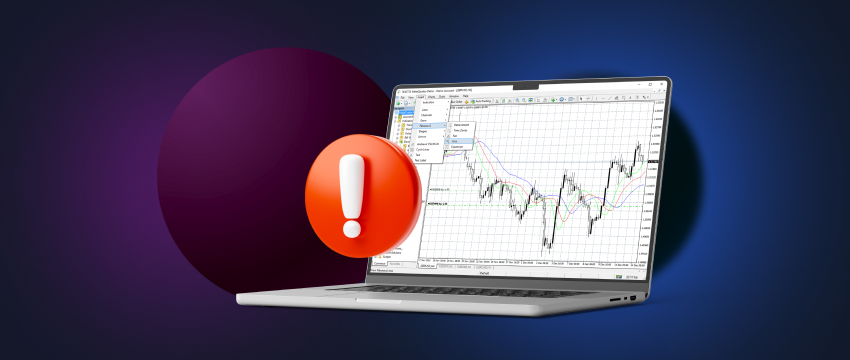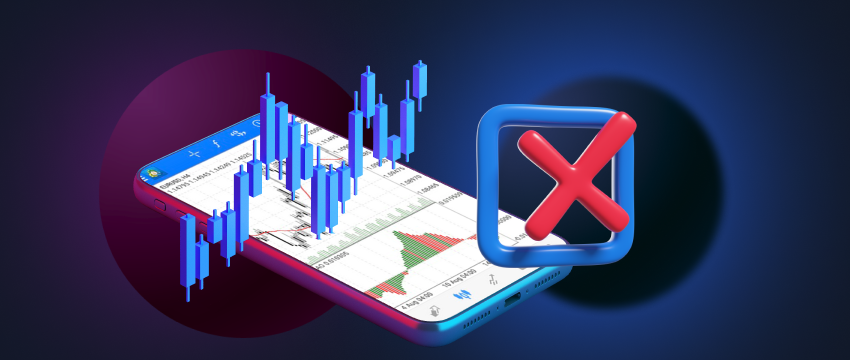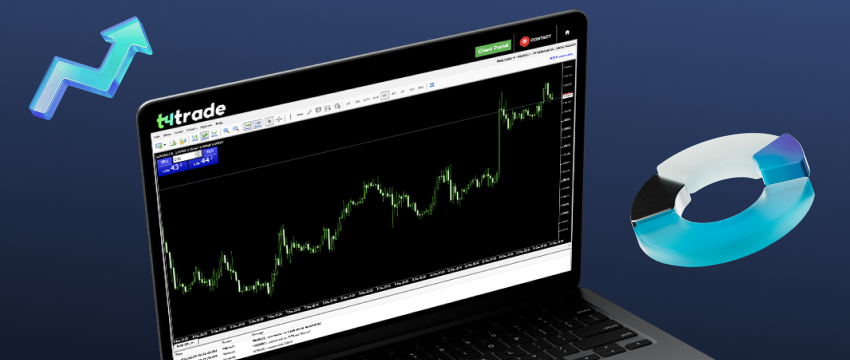There’s no doubt that forex trading appeals to traders of all levels worldwide. It’s certainly exciting, particularly for those that aren’t risk averse, and have the potential to earn someone massive gains. In addition, like most financial endeavors, forex trading requires planning and foresight to avoid losing all your money. However many forex traders make common mistakes that can lead to losses. Let’s talk about what some of those mistakes are.

1. A lack of ongoing learning
The forex market poses many challenges due to its highly volatile nature and relative complexity. Jumping into forex trading without a proper understanding of what the market entails is a frequent mistake made by traders. Taking the time to learn everything you can about trading strategies, different forms of analysis, risk management techniques, etc, is incredibly important to safeguarding your funds. Ongoing education is fundamental to making informed trading decisions and increasing the likelihood of success. Forex trading education comes in many different forms. Some of the most popular include podcasts, videos, webinars, e-books, blogs, forums, and more.
Most educational resources cater to traders with varying degrees of expertise, ensuring that there is something to be learned by everyone. Additionally, many of these are accessible for free. For example, T4Trade offers its traders access to an abundance of learning material via its top-tier Academy. This is complemented by a comprehensive blog page that covers many of the most popular forex trading topics, and an informative FAQ page. In this way, traders can gain critical insights to widen their scope of knowledge and acquire critical trading skills.
2. No well-defined trading plan
Another common mistake made by forex traders is jumping into trading without an effective trading plan in place. It’s important to note that a trading plan is key to staying focused, disciplined, and focused. It must be definitive, staying what your objectives are and how you plan on attaining them. It needs to outline the trading strategies you intend on implementing, and the risk management tools you plan on using to protect your capital. The trading plan should also align with your temperament, experience, tolerance for risk, the time you have available to trade, and most importantly, your budget.
3. Poor risk management from forex traders
As important as a trading plan is an effective risk management strategy. Let’s not forget that the forex market experiences high volatility and unexpected price fluctuations, which may lead to large losses. To not have a plan in place that mitigates this risk is a mistake that traders tend to make. Therefore, in the process of building your trading plan, ensure you also create a risk management plan to ensure your funds are protected when the market moves against you. This includes implementing techniques like stop loss and take profit orders to hold onto your capital during instances of poor market performance.
Alternatively, you may consider making use of algorithmic (automated) trading to remove the human, and thereby emotive, element from trading. Automated trading is the use of Expert Advisors (trading robots) to execute trades. The robots enter and exit positions based on predetermined criteria, sometimes within seconds, to increase the potential for more positive trading outcomes. Further, with automated trading, hundreds of trades can be executed quickly and easily throughout the trading day, far more than what is humanly possible, thereby increasing trading opportunities.

4. Lack of technical or fundamental analysis
Skilled forex traders will make use of technical and fundamental analysis to make trading decisions. To not use this form of analysis is also a common mistake, as they provide important data to make informed trading decisions. Different types of traders may make use of one form of analysis, e.g., technical analysis, more than others, e.g. fundamental analysis.
However, there are moments when knowing how to do both will be essential. In fact, while most trading strategies require the use of technical analysis, having an awareness of the fundamental factors that may impact currency prices is useful. This includes global economic releases, geopolitical tensions, environmental disasters, war, etc.
5. Overtrading or chasing losses
Overtrading typically occurs when a trader makes too many trades or uses too much leverage, leading to increased exposure and amplifying losses. This is what makes sticking to a trading plan that integrates appropriate risk management tools so effective. For one, it will reduce the risk of going off course, and minimize impulsive decision-making based on greed for instance.
Chasing losses on the other hand relates to the act of trying to recuperate losses by taking bigger trading risks. This is where one’s psychology plays a key role. Having the ability to take a step back, acknowledge the impact your emotions are having on your trading decisions, and not let them cloud your judgments will go a long way in protecting your funds.
6. Forex traders choose the wrong trading strategy
Don’t jump before you can leap. How does this apply to picking a forex trading strategy? Well, if you’re only starting out in this space, choosing a strategy that requires quick thinking, expertise, and skill, may be detrimental. Enough so that you lose all your money before you’ve even properly begun. Therefore, ensure you pick a strategy that is best suited to where you’re at in your trading journey, the risk you’re prepared to take on, the time you have to commit to trading, and the budget you have available.
7. Forex traders Not getting enough practice
Whether you’re a novice or someone who’s been trading for years, ongoing trading practice will hone your skills. While experienced traders often make the mistake of not working towards improving what they know, new traders sometimes dive into trading without gaining even a little expertise. This is what makes using a demo trading account so useful. Regardless of how much you know or don’t know, a demo account will help keep you on the ball by practicing trading in a simulated trading environment. Mimicking real market conditions, traders of all levels and/or types can test their trading strategies, regardless of complexity, and measure outcomes.
This provides a great way to identify the strengths and/or weaknesses of your trading plan and make adjustments where necessary to improve outcomes. Further, you are able to do this using virtual funds, eliminating the risk of losing your own money. You can learn more about technical and fundamental analysis, and enter or exit trades with the data you acquire. In summary, a demo trading account provides the perfect environment to build on or refine your skills, in as much time as you need, as well as build the confidence required to move to a live trading environment.

Become a T4Trade trader
T4Trade offers traders a flexible trading environment of the highest standards through which 300+ tradable instruments from 6 asset classes can be accessed. This includes shares, indices, forex, futures, metals and commodities. Additionally, traders can choose a trading account based on needs and expertise, and enjoy competitive spreads, quick execution of trading orders, and fast withdrawals or deposits. T4Trade also offers traders flexible leverage for traders to maximize all potential trading opportunities. A top-tier multilingual customer support team is also available 24/5 to assist you with any questions you might have. The team is available via email or Live Chat, making communication easy and convenient.
Disclaimer: This material is for general informational and educational purposes only and should not be considered investment advice or an investment recommendation. T4Trade is not responsible for any data provided by third parties referenced or hyperlinked in this communication.



